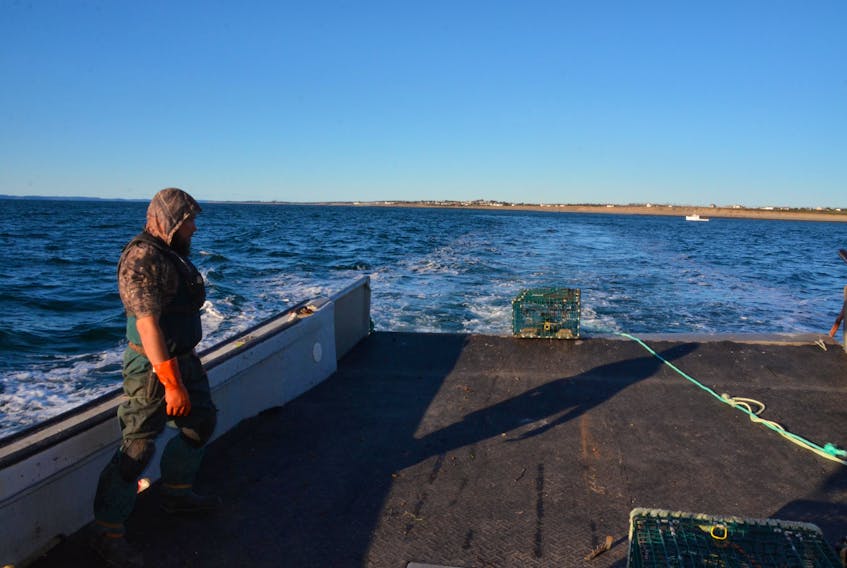Asked Thursday what her department's response will be if Sipkne'katik follows through on its plan to fish for lobster outside of the commercial season this spring, Fisheries Minister Bernadette Jordan said, “The conservation and protection officers have a job to do and that is to uphold the Fisheries Act."
“That is the work they will do. We will makes sure C and P officers as well as the RCMP and Coast Guard are present. No one wants a repeat of last year.”
When Sipekne'katik Chief Mike Sack was asked whether his fishers were prepared for a direct confrontation with fisheries officers this coming spring, he said, “100 per cent ... we know what to expect now so we will be prepared.”
Their preparation to resume their self-governed moderate livelihood fishery includes making their own lobster traps in the community.
“We will have a bigger, better fishery than we did before,” said Sack.
“We will issue more licences than last year. (The number) depends on the band membership. I encourage as many as can to come on out and make a better life for their families.”
Sack rejected the authority of the Supreme Court of Canada and the fisheries minister to put limitations on a treaty right signed before Canada existed.
While the Assembly of Nova Scotia Mi'kmaq Chiefs didn't go as far as Sack with regards to questioning federal authority, the assembly says Jordan's offer unreasonably restricts their right without prior consultation.
The conflict sets up a test not just of Jordan's plan to create a regulated moderate livelihood fishery but of whether the federal government has authority over the seas.
It is a conflict with the potential to play out during a federal election that's widely expected to be called this year.
Jordan's offer is to negotiate either with individual First Nations or collectively work on the implementation of their own moderate livelihood fishery plans. The Fisheries Department would issue licences with traps limits set and managed in co-ordination with band councils.
The caveat that has been rejected is her requirement that those moderate livelihood licences be fished during the local commercial season.
That's in alignment with the commercial fishermen's associations, which came out largely in support of Jordan's plan to create the first regulated moderate livelihood fishery 21 years after the Supreme Court of Canada directed the federal government to create one in its Marshall Decision.
“Obviously the plan is that we want to work with First Nations to get their plans in place so they are able to exercise this right,” said Jordan.
“We also want to give them the ability to sell their catch. One thing we heard was because theirs was not an authorized fishery they were not able to sell their catch. These plans are very flexible. It's a communal right not an individual right.”
Jordan's plan comes as the standing committee on fisheries and oceans considers its draft report on The Implementation of Mi'kmaq Treaty Fishing Rights.
According to Allan Clarke, it largely comes from the draft report drawn up by the committee that interviewed 45 First Nations leaders, scientists, commercial fishermen and managers.
The draft report hasn't been released publicly and has only been discussed by the committee in camera.
But Clarke, who served as DFO'S area chief enforcement officer for southwest Nova for two decades, has heard a summary of its draft findings.
“It's largely the same recommendations that were made by the same committee after it was asked the same question back in 2000,” said Clarke.
The Liberal government of the day accepted the report titled The Marshall Decision and Beyond: Implications for Management of the Atlantic Fisheries and agreed to act on its recommendations.
They included that a “cooperative, co-management and community-based approach to management of fisheries should be promoted.”
Another recommendation is that aboriginal fisheries guardians should be given the same authority to enforce regulations once trained to the same level as DFO fisheries officers and supported by an equivalently strong command, control and support structure.
But they also state that “commercial fisheries for aboriginals and non-aboriginals must be conducted under one set of rules and regulations for all participants in a particular fishery.”
And that access be provided in the form of communal, commercial fishing licences.
When Mi'kmaq fishermen returned to the water the following spring in 2000, Clarke and his conservation officers conducted forced boardings, seized boats and traps in an effort to enforce the sovereignty of the fisheries minister and the Fisheries Act over the water.
Clarke, who retired in 2014, said Thursday he doesn't expect the current federal government would have the stomach or the experience to wage that fight again.
In the years that followed, the federal government spent more than $540 million buying up commercial licences and transferring them to First Nations as communal commercial fishing licences. By 2009, bands in the Maritime provinces held 1,238 of the region's 11,727 commercial licences (10.5 per cent). In 2018 First Nations operated 320 vessels, employing 1,421 harvesters and 234 captains.
“I think from Day 1, (Fisheries and Oceans Canada) needs a communication strategy,” said Clarke.
“They have to be clear on what rules there are and what they intend on doing about it.”









